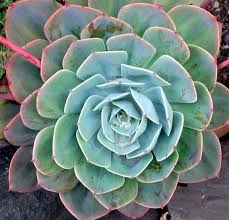succulent
英 ['sʌkjʊl(ə)nt]
美 ['sʌkjələnt]
- adj. 多汁的;多水分的;多汁性的
- n. 肉质植物;多汁植物
TEM8
1. suck => succ- = juice 汁液 + -ulent (多的, -ul- + -ent) => succulent.
2. suck => suckle.
succulent 多汁的,肉质的,肉质植物来自拉丁语 succus,汁液,来自 PIE*sug,吸,来自 PIE*seue,汁液,液体,词源同 suck,soak,soup. 即多汁的,引申词义肉质的,后用于生物学类属指肉质植物。
- succulent (adj.)
- c. 1600, from French succulent (16c.), from Latin succulentus "having juice, juicy," from succus "juice, sap;" related to sugere "to suck," and possibly cognate with Old English socian "to soak," sucan "to suck" (see sup (v.2)). The noun meaning "plant with juicy tissues" is from 1825.
- 1. Cook pieces of succulent chicken with ample garlic and a little sherry.
- 烹饪鲜美滑嫩的鸡肉时多加些大蒜,并滴入少许雪利酒。
来自柯林斯例句
- 2. These are wonderfully succulent peaches.
- 这些桃子汁水很多.
来自《简明英汉词典》
- 3. With succulent, herbaceous , species, water pressure at the nozzle is critical.
- 对肉食植物 、 草本植物来说, 喷头的水位要求很严格.
来自辞典例句
- 4. She had looked on Blacky as a succulent morsel. But because of Qin, he eluded her.
- 小二黑这个孩子,在三仙姑看来好像鲜果, 可惜多一个小芹, 就没了自己的份儿.
来自汉英文学 - 中国现代小说
- 5. This succulent dish is a Russian version of BBQ with vegetables.
- 这款美味多汁的菜肴是俄国版本的烧烤(加入蔬菜).
来自互联网
[ succulent 造句 ]
